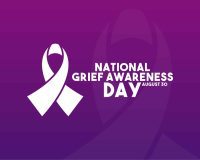
You’ve been thinking about your end of life care and have taken measures about your decisions. You’ve read the articles, spoken with family and friends about your options and set up an Advanced Health Care Directive (living will), Advance Health Care Directive (AHCD), Durable POA (Health Care Proxy), and a Medical Information Release. For some people, a DNR (Do Not Resuscitate) form is also part of the packet.
You want to be absolutely sure your wishes are carried out should you become ill, but there’s one more form that is just as important and is a key element in working together with advanced care planning: The POLST Form (Physician Orders for Life-Sustaining Treatment; also referred to as MOLST, Medical Orders for Life-Sustaining Treatment) is a medical order sheet based on the current medical condition of the patient referenced in the document and their wishes stated verbally or in a written advanced directive.
It gives your doctors more complete specifications should you be unlikely to come back from life-support to the quality of life you want. These forms are meant for patients who are elderly, frail, terminally ill or have a medical condition that has a need for standing medical orders for emergency care. This form was developed to help identify patients’ wishes regarding medical treatment and creates portable medical orders.
Emergency personnel are required by law to prolong a patient’s life unless they have specific orders from a physician not to do so and if there is no POLST form, the medical staff will err on the side of prolonging life.
POLST Forms have instructions which the advanced directive doesn’t cover and summarizes a doctor’s specifications for the use of specific treatments like artificially administered fluids and nutrition, antibiotic use, CPR, airway management (breathing machines), and more. If, for example, the boxes “Do Not Attempt Resuscitation/D.N.R.” and “Comfort-Focused Treatment” are checked, emergency personnel have a clear directive to allow a natural death, using whatever means necessary to keep the patient comfortable. These forms are different in each state (the order of the sections or the options they cover may be in different order) but they cover the same information.
This form is not open to negotiation and in most states, a POLST form is printed on brightly colored paper so it will easily stand out in a patient’s medical records. This isn’t a document that should be filed away with your other papers. It’s best to have it readily accessible posted in a highly visible area of the home, such as the refrigerator so it can be easily seen by emergency personnel. The form must be signed by a doctor or approved health care personnel to be valid.
Not all states have POLST Forms yet, but for those that do a quick search on the Internet will provide a PDF of the form available to download. For more information on POLST forms and to see which states have them is available, go to www.polst.org.
Click here to learn more about how to prepare for hospice care.
Additional Links:
http://hospice-matters.com/dnr-polst-forms-8th-day-week/
https://www.helpguide.org/harvard/understanding-living-wills.htm
http://www.pbs.org/newshour/updates/decisions-future-documents-need-2/
https://www.lifehappens.org/blog/end-of-life-documents-what-are-they-and-do-i-need-them/




